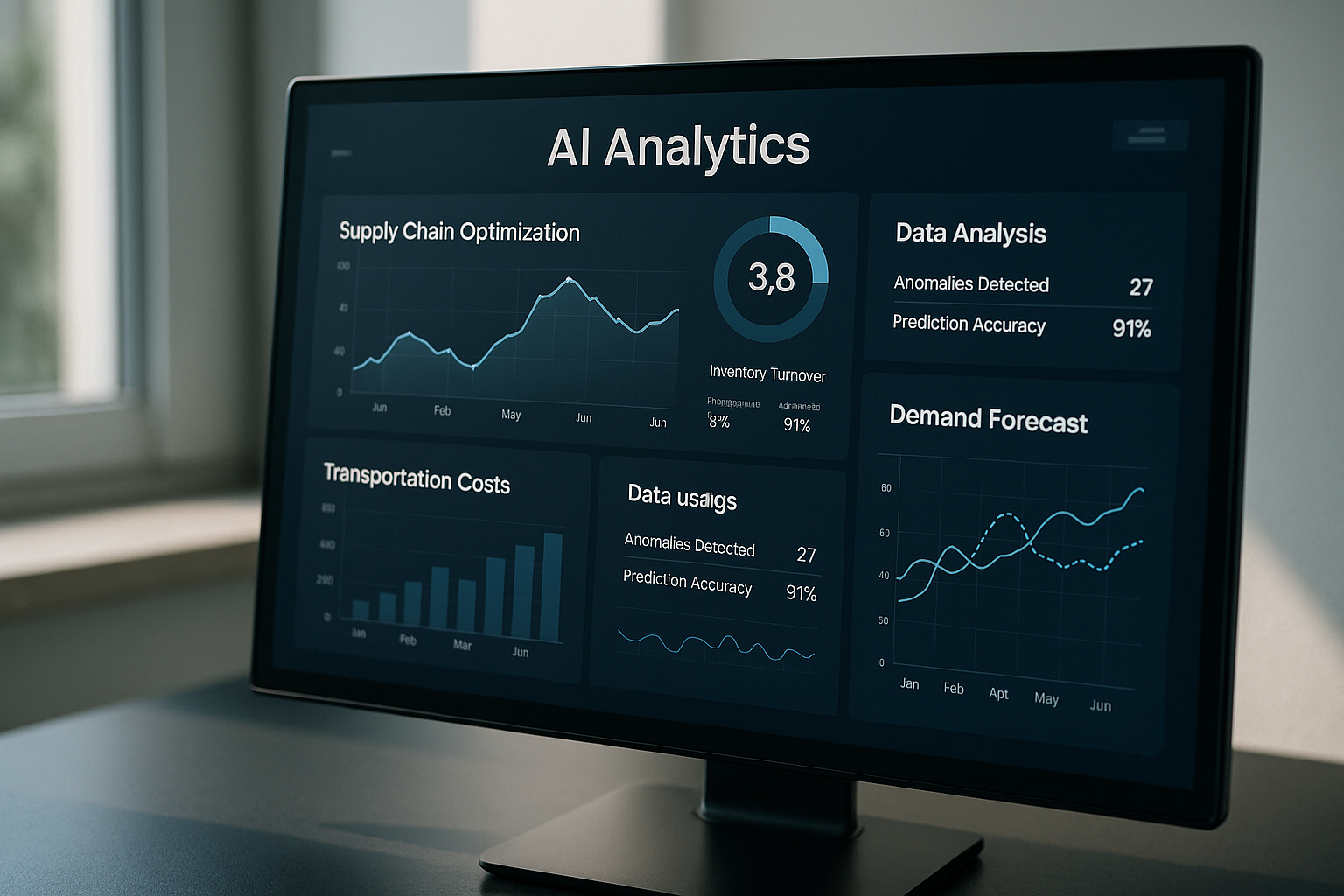Transform Business Efficiency with AI Supply Chain Mastery
Are you ready to revolutionize your business's efficiency by mastering AI in supply chain management? Explore these options to uncover the transformative benefits that await your operations.

Understanding AI in Supply Chain Management
Artificial Intelligence (AI) is rapidly transforming supply chain management by enhancing efficiency, reducing costs, and improving decision-making processes. AI technologies such as machine learning, predictive analytics, and robotic process automation are being integrated into supply chains to streamline operations and increase responsiveness to market demands. For businesses looking to stay competitive, embracing AI in supply chain management is no longer optional but essential.
The Impact of AI on Supply Chain Efficiency
AI can significantly enhance supply chain efficiency by automating routine tasks, optimizing inventory levels, and improving demand forecasting. For instance, machine learning algorithms analyze historical data to predict future demand with greater accuracy, reducing the risk of overstocking or stockouts. According to a McKinsey report, companies that have implemented AI in their supply chains have seen a reduction in logistics costs by up to 15% and inventory levels by 35%1.
Moreover, AI-driven supply chains are more agile and capable of quickly adapting to disruptions. During the COVID-19 pandemic, businesses with AI-enhanced supply chains were better equipped to manage sudden shifts in demand and supply constraints, demonstrating the resilience and flexibility that AI can provide2.
Cost-Effectiveness and ROI
While the initial investment in AI technology can be substantial, the long-term return on investment (ROI) often justifies the cost. AI solutions can lead to significant cost savings through process automation and enhanced efficiency. A study by Accenture found that AI could boost profitability in the logistics and supply chain industry by up to 39% by 20353.
Furthermore, businesses can explore various pricing options and packages offered by AI solution providers, which can be tailored to specific needs and budgets. This flexibility allows companies to gradually integrate AI into their supply chains, minimizing financial risk while maximizing benefits.
Real-World Applications and Success Stories
Several companies have successfully integrated AI into their supply chains, reaping significant benefits. For example, Amazon uses AI to optimize its warehouse operations and delivery routes, ensuring timely and cost-effective deliveries4. Similarly, DHL has implemented AI-driven predictive analytics to enhance its logistics operations, resulting in improved delivery accuracy and customer satisfaction5.
These examples highlight the potential of AI to transform supply chain operations, offering businesses a competitive edge in the market.
Exploring AI Solutions for Your Business
For businesses interested in leveraging AI for supply chain efficiency, numerous options are available. Companies can partner with AI technology providers to implement customized solutions that meet their unique operational needs. Additionally, many service providers offer trial periods or pilot programs, allowing businesses to evaluate the effectiveness of AI solutions before committing fully.
As you consider integrating AI into your supply chain, take advantage of the wealth of resources and options available. From exploring case studies to visiting websites of leading AI providers, there are numerous avenues to discover how AI can benefit your operations.
By mastering AI in supply chain management, you position your business for enhanced efficiency, cost savings, and a competitive advantage. Don't wait to explore these transformative opportunities and see how AI can revolutionize your operations.